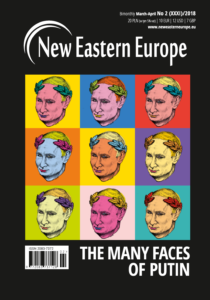 The poisoning of a former Russian spy and his daughter on British territory—an act that could only have been carried out by Moscow—has set off a chain of diplomatic expulsions and counter-expulsions recalling the Cold War, notes the Atlantic Council’s Daniel Fried, a former Assistant Secretary of State for European Affairs and Ambassador to Poland. Russia’s act of aggression called for a sharp response, so the British should be commended for insisting on allied solidarity, and the Trump administration and other Western governments should be commended for showing it. But will it work? Is it enough? he asks in Foreign Affairs:
The poisoning of a former Russian spy and his daughter on British territory—an act that could only have been carried out by Moscow—has set off a chain of diplomatic expulsions and counter-expulsions recalling the Cold War, notes the Atlantic Council’s Daniel Fried, a former Assistant Secretary of State for European Affairs and Ambassador to Poland. Russia’s act of aggression called for a sharp response, so the British should be commended for insisting on allied solidarity, and the Trump administration and other Western governments should be commended for showing it. But will it work? Is it enough? he asks in Foreign Affairs:
The short answer is: not yet. Diplomatic expulsions are a standard if extreme way of showing outrage. But tactically speaking, they have mixed results. Experience suggests that expulsions work best as part of a broad strategy to deter, pressure, and ultimately change an adversary’s behavior. ….The Trump administration should make such solidarity a habit and, accordingly, should work with U.S. allies to take steps to impose a cost on Putin and, crucially, on those in his circle, showing that Putin cannot protect their interests.

RFE/RL
Following the money is often a good way to combat the Kremlin kleptocracy, adds Fried (right), a board member of the National Endowment for Democracy:
For example, the U.S. government should tighten regulations that currently allow money to flow into the United States through disguised shell companies or complex real estate deals that mask the true owners. If the United States wants to cooperate with a better Russia in the future, it needs to confound the Russia it faces now, so that Russians begin to reassess their current path.







